Datasheet
Year, pagecount:2017, 8 page(s)
Language:English
Downloads:2
Uploaded:August 27, 2018
Size:2 MB
Institution:
-
Comments:
Attachment:-
Download in PDF:Please log in!
Comments
No comments yet. You can be the first!Most popular documents in this category
Content extract
Source: http://www.doksinet The joint Danish-Vietnamese cooperation on energy efficiency Source: http://www.doksinet Green government-togovernment assistance The primary focus of the Danish Energy Agency’s global assistance is anchored in government-to-government cooperation. The goal of the government-to-government cooperation is to enhance the energy regulating authorities of Vietnam in their transition towards a low carbon energy sector by bolstering the framework condition of the regulating authorities. In the light of the Paris agreement at COP21 in December 2015, the government-togovernment cooperation is primarily supporting the implementation of the National Determined Contribution (NDC) that the different governments committed to in Paris. The government of Vietnam has committed to an unconditional reduction 2 | of carbon emissions by 8% against a baseline and up to 25% on the condition of international contribution. The government-to-government cooperation is not
just to promote green transition towards renewable energy and concrete energy savings and reduction of emissions, but also to promote institutional capacity building. It is a focal point in the Danish Energy Agency’s assistance to support capacity strengthening for the authorities of Vietnam to enforce and regulate the energy sector in an efficient and comprehensive way. The significant focus on capacity building is to insure that the assistance is sustainably anchored in the respective authorities and to assure that the employees have the necessary training and skills to enforce the regulation of the policy. Source: http://www.doksinet Facing the challenges For emerging economies, a reliable and stable energy supply constitutes a critical component for continued economic Vietnam and Denmark cooperate on low carbon transition in industries and buildings development. The use of renewable energy Denmark and Vietnam implement a resources and working for enhanced project with
focus on energy efficiency energy efficiency increases the reliability in enterprises and buildings. The project of the energy system. The transition to supports implementation of the Vietnam low-carbon technologies also contributes National Target Program for Energy to mitigate climate change – a global Efficiency (VNEEP). challenge very present to most emerging economies. Vietnam is a fast accelerating economy, increasingly experiencing change of land use with sprawling urbanization and bustling enterprises. Anticipating a depletion of national energy resources, combined with high use of fossil fuels and inefficient energy use, is adding to climate change and instability of the energy system. In response to this, Vietnam has recently strengthened its ambition on climate change mitigation through a dramatic increase in use of renewable The first component of the LCEE project is targeting the large segment of SMEs in the Vietnamese industry sector and their sizable carbon
footprint. The project focuses on a low-carbon transition of six technology solutions with a particularly large carbon emission reduction potential. The project addresses all major barriers to implementation of the low carbon solutions, such as lack of access to finance, lack of technical competence of suppliers and energy end users and others. energy as well as reduced energy intensity. The Danish experiences in upscaling renewable energy use and energy efficiency, while maintaining economic growth, are put into action in a joint energy efficiency project in Vietnam. Danish Energy Agency, Tel: +45 3392 6700, website: www.ensdk/en |3 Source: http://www.doksinet Joint effort to accelerate green development The immediate objective of the second An innovative financing mechanism has implementing energy efficiency in large been developed including a loan guarantee of up to 50 pct. of investment costs and a rebate scheme for successful projects. Under this component, a budget of
DKK 35 million is reserved to support bankable energy efficiency investment projects of SMEs. The concept has proven effective By project end all the funding is expected to be committed for low carbon investments in SMEs, and the market for the low carbon solutions will have been considerably matured. The second component of the DanishVietnamese project emphasizes efficient use of clean energy – a key element in a sustainable energy system. The Danish Energy Agency assists MOC in implementing a newly adopted building code, providing technical support to improve energy efficiency in the construction sector. The main outcome of this component is a significant increase in the awareness of building designers about how to design new buildings in a more energy efficient and cost-effective way. This has been realized through a comprehensive training effort, whereby more than 600 building designers have been trained in design of energy efficient buildings. The training is still ongoing even
without Danish support. 4 | component of the Danish-Vietnamese project is to improve capacity for buildings, contributing to the VNEEP energy saving targets of between 5-8 pct. The government of Vietnam has adopted an ambitious strategy for renewable energy deployment in the power sector. To assist the implementation of this strategy, Denmark has helped develop capacity in the field of power sector planning, using Danish tools and approaches to effectively integrate large amounts of renewable energy. A power planning model has been developed for Vietnam and a team of Vietnamese experts have been trained to use the model. The analysis results will be disseminated in a first Energy Outlook Report in May 2017. Source: http://www.doksinet Danish Energy Agency, Tel: +45 3392 6700, website: www.ensdk/en |5 Source: http://www.doksinet The Danish-Vietnamese agreements The focus of the two Memorandums of Institutional strengthening including Understandings between Danish Ministry
capacity building and exchange of Climate, Energy and Building and of experience regarding policy Vietnamese ministries are: development. 1. Agreement with Ministry of Industry Promotion of renewable energy, and Trade of the Socialist Republic of including the use of market-based Vietnam (MOIT) initiatives. Strengthened cooperation and 2. Agreement with Ministry of knowledge exchange on energy Construction of the Socialist Republic of efficiency and renewable energy. Vietnam (MOC) Development of regulation to support the Development and promotion of energy implementation of the Law on Energy efficiency in the building sector. This Efficiency and Conservation. includes developing mechanisms, Promotion of energy efficiency in SMEs in Vietnam through capacity building, strategies, action plans, codes and standards on energy efficiency. development of policies and strategies at Implementation of the energy efficiency national and district levels. building code
as well as enforcing Development of new programs and projects related to the implementation standards and minimum requirements for building components. of the VNEEP, the Green Growth Investigation of possible energy strategy, and other national policies and efficiency pilot buildings, to demonstrate strategies, with the potential to obtain implementation of energy efficiency financial support from international building code obligations. donor organizations Enhancement of cooperation and exchange of views on energy efficiency in the building sector. 6 | Source: http://www.doksinet Danish Energy Agency, Tel: +45 3392 6700, website: www.ensdk/en |7 Source: http://www.doksinet jac@ens.dk Tlf: 33926720 The Danish Energy Agency’s Centre for Global Cooperation supports emerging economies to combine sustainable future energy supplies with economic growth. The initiative is based on four decades of Danish experience with renewable energy and energy efficiency,
transforming the energy sectors to deploy increasingly more lowcarbon technologies. Learn more on our website: www.ensdk/en/our-responsibilities/ global-cooperation For further information, please contact Jacob Høgh jac@ens.dk Phone: +45 3392 6720
just to promote green transition towards renewable energy and concrete energy savings and reduction of emissions, but also to promote institutional capacity building. It is a focal point in the Danish Energy Agency’s assistance to support capacity strengthening for the authorities of Vietnam to enforce and regulate the energy sector in an efficient and comprehensive way. The significant focus on capacity building is to insure that the assistance is sustainably anchored in the respective authorities and to assure that the employees have the necessary training and skills to enforce the regulation of the policy. Source: http://www.doksinet Facing the challenges For emerging economies, a reliable and stable energy supply constitutes a critical component for continued economic Vietnam and Denmark cooperate on low carbon transition in industries and buildings development. The use of renewable energy Denmark and Vietnam implement a resources and working for enhanced project with
focus on energy efficiency energy efficiency increases the reliability in enterprises and buildings. The project of the energy system. The transition to supports implementation of the Vietnam low-carbon technologies also contributes National Target Program for Energy to mitigate climate change – a global Efficiency (VNEEP). challenge very present to most emerging economies. Vietnam is a fast accelerating economy, increasingly experiencing change of land use with sprawling urbanization and bustling enterprises. Anticipating a depletion of national energy resources, combined with high use of fossil fuels and inefficient energy use, is adding to climate change and instability of the energy system. In response to this, Vietnam has recently strengthened its ambition on climate change mitigation through a dramatic increase in use of renewable The first component of the LCEE project is targeting the large segment of SMEs in the Vietnamese industry sector and their sizable carbon
footprint. The project focuses on a low-carbon transition of six technology solutions with a particularly large carbon emission reduction potential. The project addresses all major barriers to implementation of the low carbon solutions, such as lack of access to finance, lack of technical competence of suppliers and energy end users and others. energy as well as reduced energy intensity. The Danish experiences in upscaling renewable energy use and energy efficiency, while maintaining economic growth, are put into action in a joint energy efficiency project in Vietnam. Danish Energy Agency, Tel: +45 3392 6700, website: www.ensdk/en |3 Source: http://www.doksinet Joint effort to accelerate green development The immediate objective of the second An innovative financing mechanism has implementing energy efficiency in large been developed including a loan guarantee of up to 50 pct. of investment costs and a rebate scheme for successful projects. Under this component, a budget of
DKK 35 million is reserved to support bankable energy efficiency investment projects of SMEs. The concept has proven effective By project end all the funding is expected to be committed for low carbon investments in SMEs, and the market for the low carbon solutions will have been considerably matured. The second component of the DanishVietnamese project emphasizes efficient use of clean energy – a key element in a sustainable energy system. The Danish Energy Agency assists MOC in implementing a newly adopted building code, providing technical support to improve energy efficiency in the construction sector. The main outcome of this component is a significant increase in the awareness of building designers about how to design new buildings in a more energy efficient and cost-effective way. This has been realized through a comprehensive training effort, whereby more than 600 building designers have been trained in design of energy efficient buildings. The training is still ongoing even
without Danish support. 4 | component of the Danish-Vietnamese project is to improve capacity for buildings, contributing to the VNEEP energy saving targets of between 5-8 pct. The government of Vietnam has adopted an ambitious strategy for renewable energy deployment in the power sector. To assist the implementation of this strategy, Denmark has helped develop capacity in the field of power sector planning, using Danish tools and approaches to effectively integrate large amounts of renewable energy. A power planning model has been developed for Vietnam and a team of Vietnamese experts have been trained to use the model. The analysis results will be disseminated in a first Energy Outlook Report in May 2017. Source: http://www.doksinet Danish Energy Agency, Tel: +45 3392 6700, website: www.ensdk/en |5 Source: http://www.doksinet The Danish-Vietnamese agreements The focus of the two Memorandums of Institutional strengthening including Understandings between Danish Ministry
capacity building and exchange of Climate, Energy and Building and of experience regarding policy Vietnamese ministries are: development. 1. Agreement with Ministry of Industry Promotion of renewable energy, and Trade of the Socialist Republic of including the use of market-based Vietnam (MOIT) initiatives. Strengthened cooperation and 2. Agreement with Ministry of knowledge exchange on energy Construction of the Socialist Republic of efficiency and renewable energy. Vietnam (MOC) Development of regulation to support the Development and promotion of energy implementation of the Law on Energy efficiency in the building sector. This Efficiency and Conservation. includes developing mechanisms, Promotion of energy efficiency in SMEs in Vietnam through capacity building, strategies, action plans, codes and standards on energy efficiency. development of policies and strategies at Implementation of the energy efficiency national and district levels. building code
as well as enforcing Development of new programs and projects related to the implementation standards and minimum requirements for building components. of the VNEEP, the Green Growth Investigation of possible energy strategy, and other national policies and efficiency pilot buildings, to demonstrate strategies, with the potential to obtain implementation of energy efficiency financial support from international building code obligations. donor organizations Enhancement of cooperation and exchange of views on energy efficiency in the building sector. 6 | Source: http://www.doksinet Danish Energy Agency, Tel: +45 3392 6700, website: www.ensdk/en |7 Source: http://www.doksinet jac@ens.dk Tlf: 33926720 The Danish Energy Agency’s Centre for Global Cooperation supports emerging economies to combine sustainable future energy supplies with economic growth. The initiative is based on four decades of Danish experience with renewable energy and energy efficiency,
transforming the energy sectors to deploy increasingly more lowcarbon technologies. Learn more on our website: www.ensdk/en/our-responsibilities/ global-cooperation For further information, please contact Jacob Høgh jac@ens.dk Phone: +45 3392 6720
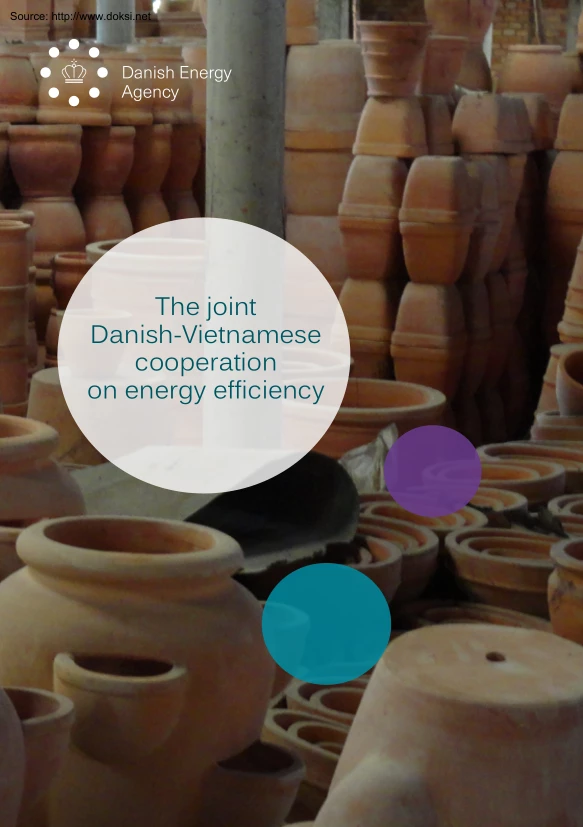
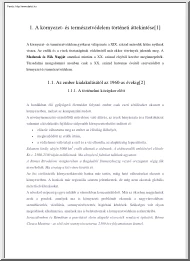
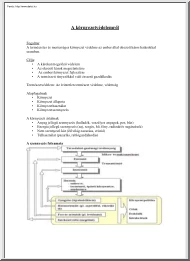
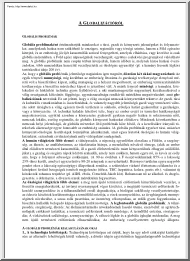
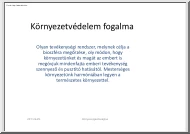
 Just like you draw up a plan when you’re going to war, building a house, or even going on vacation, you need to draw up a plan for your business. This tutorial will help you to clearly see where you are and make it possible to understand where you’re going.
Just like you draw up a plan when you’re going to war, building a house, or even going on vacation, you need to draw up a plan for your business. This tutorial will help you to clearly see where you are and make it possible to understand where you’re going.